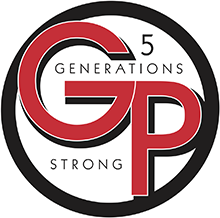A fresh coat of paint does more than improve your commercial building’s appearance – it reflects your brand, welcomes customers, and creates a positive environment for employees. Commercial painting jobs often have specific challenges, which is why choosing the right contractor is crucial. Here’s your guide:
Understanding Commercial Painting Needs
Commercial projects have unique requirements compared to residential painting:
- Scale and Scope: Commercial spaces are often larger and more complex.
- Durability: Commercial paints need to endure high traffic and greater wear and tear.
- Specialized Techniques: Commercial projects might require surface treatments, special finishes, or the use of specific coatings.
- Timing: Many businesses need jobs done outside of operating hours or with tight deadlines to minimize disruption.
Finding Commercial Painting Specialists
Look for contractors with proven commercial experience:
- Referrals: Ask property managers, business associations, or other commercial property owners for recommendations.
- Online Search: Look for contractors specializing in commercial painting, mentioning your industry (office, retail, healthcare, etc.).
- Industry Resources: Commercial painting associations or trade groups might have listings of qualified members.
Vetting Commercial Painters
Pay attention to these key factors:
- Licensing and Insurance: Check for necessary licenses, and verify they have ample liability coverage and workers’ compensation insurance.
- Commercial Portfolio: Ask for examples of similar projects. Were they completed on time and with high-quality results?
- References: Specifically request references from other commercial clients. Ask about the contractor’s professionalism, communication, and ability to handle project complexities.
Detailed Estimates and Proposals
Request comprehensive proposals that outline:
- Surface preparation: This is crucial for commercial spaces and may involve special cleaning, repairs, or treatment of specific materials.
- Paint Specifications: The proposal should specify brands, types, and the number of coats needed for optimal durability.
- Project Timeline: Make sure it aligns with your business needs, considering factors like after-hours work or phased painting.
- Safety Plans: How will they protect your property, employees, and customers during the project?
Questions for Potential Contractors
Discuss these vital points:
- Crew Size and Expertise: Do they have a team experienced in commercial projects of your size and type?
- Disruption Minimization: How will they control dust, noise, and access restrictions for the safety and convenience of those in the building?
- Special Equipment: Will they have the scaffolding, lifts, or spray equipment needed for a commercial job?
- Warranty: What guarantees do they offer on their workmanship and materials?
Additional Considerations for Commercial Projects
- Color Consultation: Some contractors offer color consulting services to help you select the perfect color scheme for your brand and building.
- Maintenance Plans: Discuss ongoing maintenance options to keep your commercial space looking fresh.
- Communication Protocols: Establish clear channels of communication for project updates and address any concerns that arise.
The Importance of a Written Contract
A detailed contract protects both you and the contractor. Ensure it includes:
- Project Scope: A clear outline of all areas to be painted, surface preparation, and specific finishes.
- Materials: Brand, type, color, and quantity of paint.
- Cost and Payment Schedule: Including any deposits, progress payments, and final payment terms.
- Timeline and Work Hours: Specific start and completion dates, and any agreed-upon working hours.
We’re always happy to answer questions and provide estimates. If you’re ready to experience the Gibson Painting difference, contact us today!
